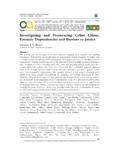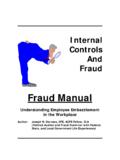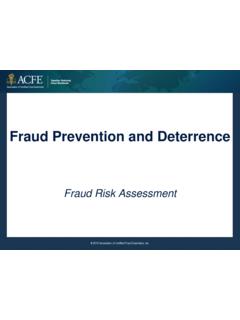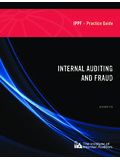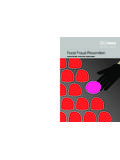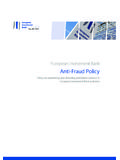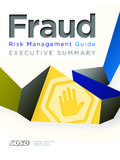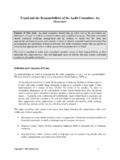Transcription of Digital Piracy, Self-Control Theory, and Rational Choice ...
1 International Journal of Cyber Criminology Vol 1 Issue 1 January 2007 33 Digital piracy , Self-Control theory , and Rational Choice : An Examination of the Role of Value George E. Higgins1 University of Louisville, USA Abstract To date, several researchers have shown that attitudes, low Self-Control , social learning theory and deterrence theory to explain Digital piracy . However, no study examined whether Rational Choice theory mediated the link between low Self-Control and Digital piracy . Further, no study in Digital piracy or criminological literature had considered the role of value in such an examination. Therefore, the purpose of the present study was to contribute to the literature by examining the links between low Self-Control , Rational Choice , value, and Digital piracy . This study built on the mediating model presented by Piquero and Tibbetts (1996).
2 That is, this study assumed that Rational Choice theory mediated the link between low Self-Control and Digital piracy . Further, this study assumed that some situational factors would mediate the effect of other situational factors _____Keywords: Rational Choice theory , Digital piracy , Low Self-Control , Social Learning theory ; Introduction Digital piracy was defined as the illegal copying of Digital goods, software, Digital documents, Digital audio (including music and voice), and Digital video for any other reason other than to backup without explicit permission from and compensation to the copyright holder (Gopal, Sanders, Bahattacharjee, Agrawal, & Wagner, 2004). In particular, Digital piracy had been illegal since the Copyright Act of 1976 (Im & Koen, 1990) that had been amended in the No Electronic Theft (NET) Act (Koen & Im, 1997).
3 These acts made the copying and distribution of Digital media over the Internet a felony offense. These laws had produced several court cases for pirating software, music, and movies from the Internet (Motivans, 2004). 1 Assistant Professor, Department of Justice Administration, College of Arts and Sciences, University of Louisville, Louisville, KY, 40292, USA E-mail: Digital piracy , Self-Control theory , and Rational Choice George Higgins 34 The World Intellectual Property Organisation (WIPO) has developed several treaties to assist in the protection of copyrights. Specifically, WIPO has three treaties that preclude the unlawful taking of copyrighted material: The Copyright Treaty, The Performers and Producers of Phonograms Treaty, and The Databases Treaty. Regardless of these treaties, Rao (2003) showed that the international piracy rates increased in the years of 2000 and 2001.
4 Therefore, piracy is a worldwide behavior. Because of the attributes of the Internet, piracy took place in almost complete deceit making the tracking of rates nearly impossible. However, an industry groups had estimated that software piracy accounted for nearly 11 billion dollars in lost revenue and contributed to loss of jobs and reduced government revenues (Business Software Alliance, 2003). Equally as important as the illegality and economic implications were the perpetrators of this act. Hinduja (2001, 2003) and Hollinger (1988) argued that software piracy was rampant among college aged students. This should not be shocking as college students routinely used computers and highly priced software (Higgins, 2005). These students were generally male and were enrolled in the liberal arts. To date, several researchers had shown that attitudes (Rahim, Seyal, & Rahman, 2001), low Self-Control (Higgins, 2005), social learning theory (Skinner & Fream, 1997), and deterrence theory (Gopal et al.)
5 , 2004; Higgins, Wilson, & Fell, 2005) could explain Digital piracy . However, no study examined whether Rational Choice theory mediated the link between low Self-Control and Digital piracy . Further, no study in the Digital piracy or criminological literature had considered the role of value in such an examination. Therefore, the purpose of the present study was to contribute to the literature by examining the links between low Self-Control , Rational Choice , value, and Digital piracy . This study built on the mediating model presented by Piquero and Tibbetts (1996). That is, this study assumed that Rational Choice theory mediated the link between low Self-Control and Digital piracy . Further, this study assumed that some situational factors would mediate the effect of other situational factors. This contributed to the literature in two unique ways.
6 First, the study validated the Piquero and Tibbetts s (1996) model. Second, this study advanced Rational Choice , Self-Control theory , and the Digital piracy literatures by including a measure of value in the model as a form of motivation. To make these contributions, this study presented self -International Journal of Cyber Criminology Vol 1 Issue 1 January 2007 35 control theory and Rational Choice theory . The role of value in Self-Control and Rational Choice theories is discussed and the methods, results, and discussion are presented in order. Self-Control theory Gottfredson and Hirschi s (1990) General theory of Crime, now known as Self-Control theory , is one of the most popular crime theories (Agnew, 1995; Tibbetts & Gibson, 2002). The key component of their theory is low Self-Control . Low Self-Control is the time-stable individual difference that regulates behavior.
7 Individuals with low Self-Control are the probable result of ineffective or poor parenting practices early in life--before the age of eight. Specifically, parents that are not effective or consistent in forming an emotional attachment with their child will make the task of monitoring their child s behavior difficult. The difficulty of monitoring the child s behavior reduces the probability that the parents will recognize their child s deviant behavior. This will reduce the opportunity for parents to apply non-corporal punishment for deviant behavior. Thus, these individuals are more likely to prefer simple and easy tasks; prefer physical rather than mental activities; prefer risky behaviors; prefer to focus on themselves; and prefer not to control their temper. That is, these individuals are likely to have low Self-Control and be more likely to disregard the long-term effects of their decisions for themselves and for others (Gottfredson & Hirschi, 1990).
8 With this disregard, low Self-Control manifests itself in several ways. One way is in the form of criminal behavior. For Gottfredson and Hirschi (1990), crime is an act of force or fraud that an individual pursues to satisfy their interests. Crimes are attractive to those with low Self-Control because crime shares many of the characteristics of low Self-Control . For instance, crimes are risky, immediately gratifying, easy and simple to perform (Gottfredson & Hirschi, 1990). Thus, low Self-Control should have a link with Digital piracy . That is, individuals with low Self-Control may not be able to delay purchasing their own copy of the Digital media. The individual with low Self-Control is not likely to honor the trust in the licensing agreement between the creator of the Digital media and the copyright holder. Digital piracy is not necessarily a physical act, piracy may provide a thrill.
9 Given the simplicity of the Internet, Digital piracy is simple and easy to perform. So far, the literature is supportive of Gottfredson and Hirschi s (1990) theory . Specifically, the majority of the empirical research Digital piracy , Self-Control theory , and Rational Choice George Higgins 36 indicated that low Self-Control has at least a moderate link with criminal behavior (Pratt & Cullen s 2000)2. To date, two studies have directly examined and shown that low Self-Control --measured using self -reports and mother reports--remains relatively stable over time (Arneklev, Cochran, & Gainey, 1999; Turner & Piquero, 2002). Some researchers showed that low Self-Control had a link with Digital piracy (Higgins, 2005; Higgins & Makin, 2004a, b; Higgins, Wilson, & Fell, 2005, in-press; Higgins & Wilson, in-press)3. Based on previous researchers results it is expected that low Self-Control will have a direct effect on Digital piracy , these researchers have not considered the complete role of Rational Choice theory in Self-Control theory , nor have these researchers examined the role of value in the context of Digital piracy .
10 Rational Choice theory Cornish and Clarke (1986) presented that Rational Choice had three components. The first component of the theory was that individuals would perform criminal acts if they believed that these acts would be to their benefit. This sort of determination required a basic decision-making process. Although the process of making this decision would be bounded by limited information (Simon, 1957), criminal decision-making would be a Rational processing of the cost ( , the pain) and the benefits of the act ( , the pleasure, thrill, or excitement). When the individual viewed that the criminal act would provide more of a benefit than a cost, the individual would perform the criminal act. Second, Cornish and Clarke (1986) suggested that Rational Choice theory required a crime-specific focus. The crime specific focus was necessary to capture the idiosyncrasies of different needs that were attached to a criminal act.


